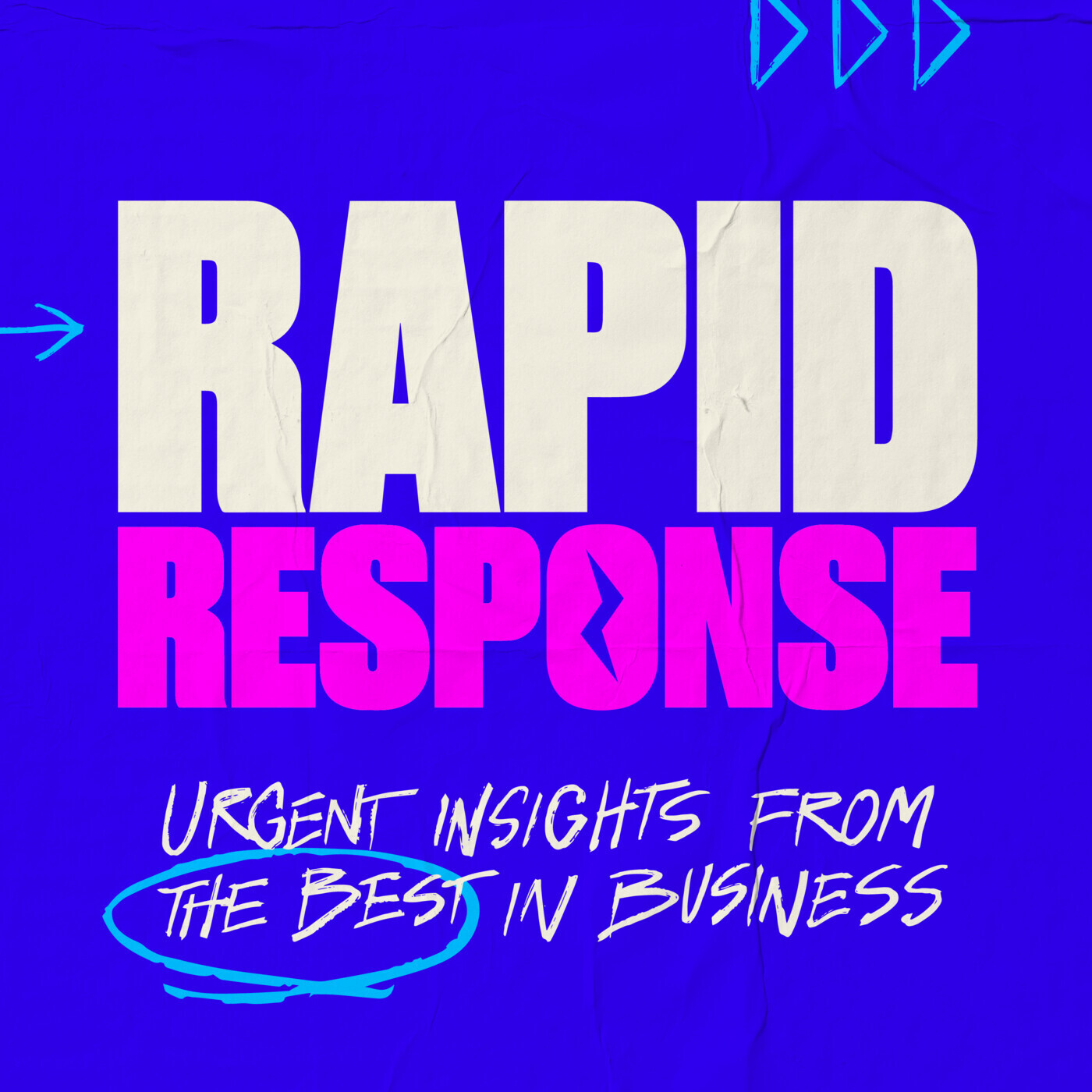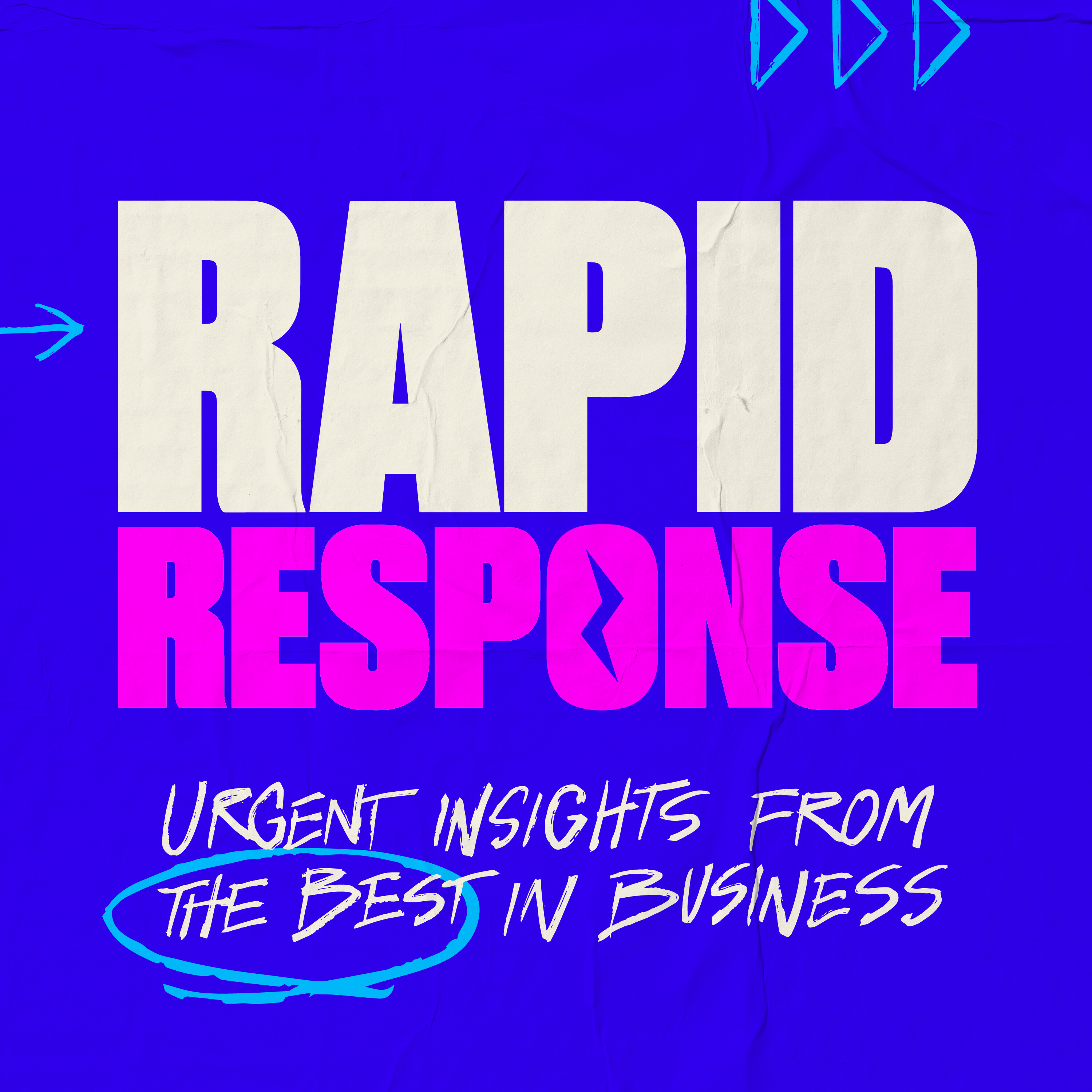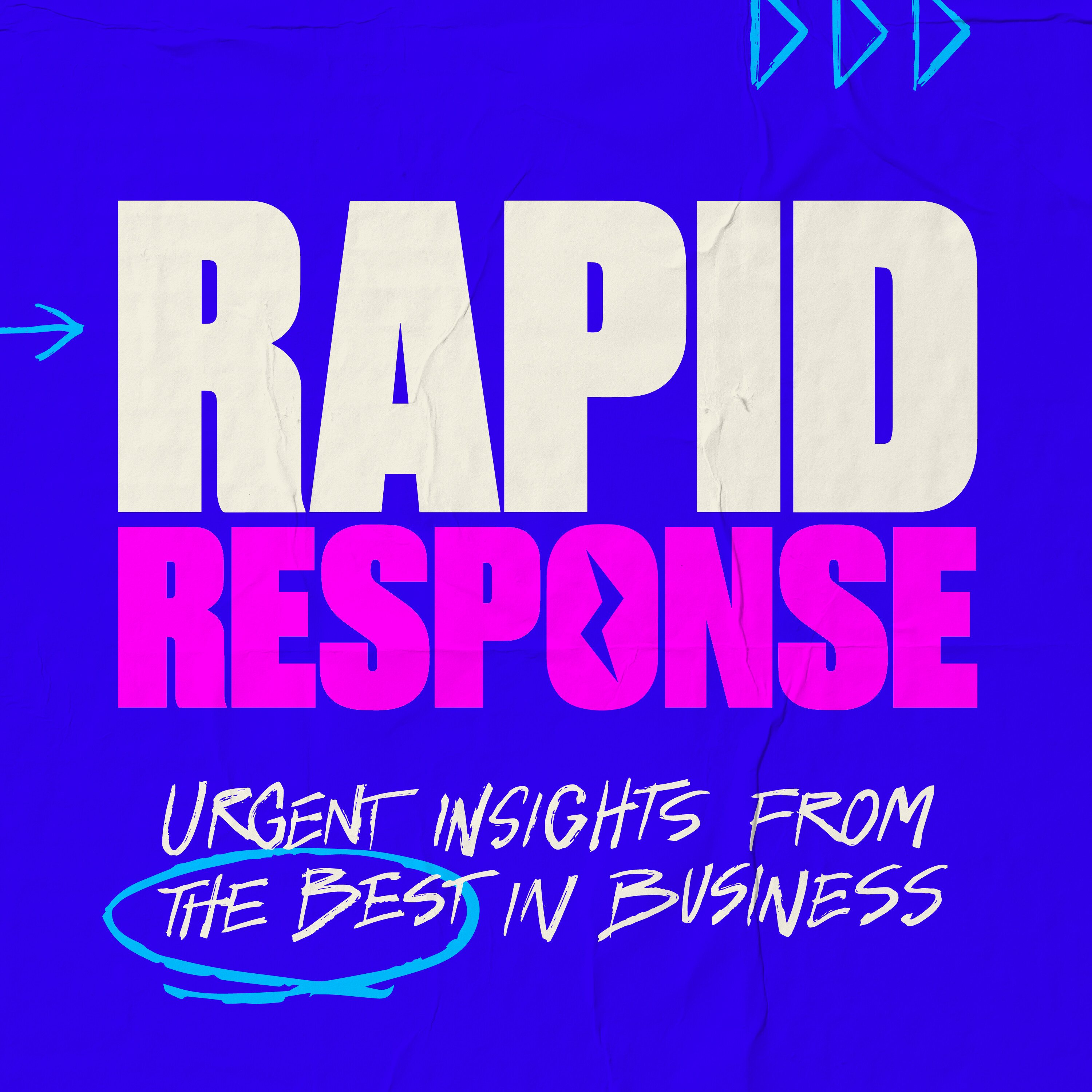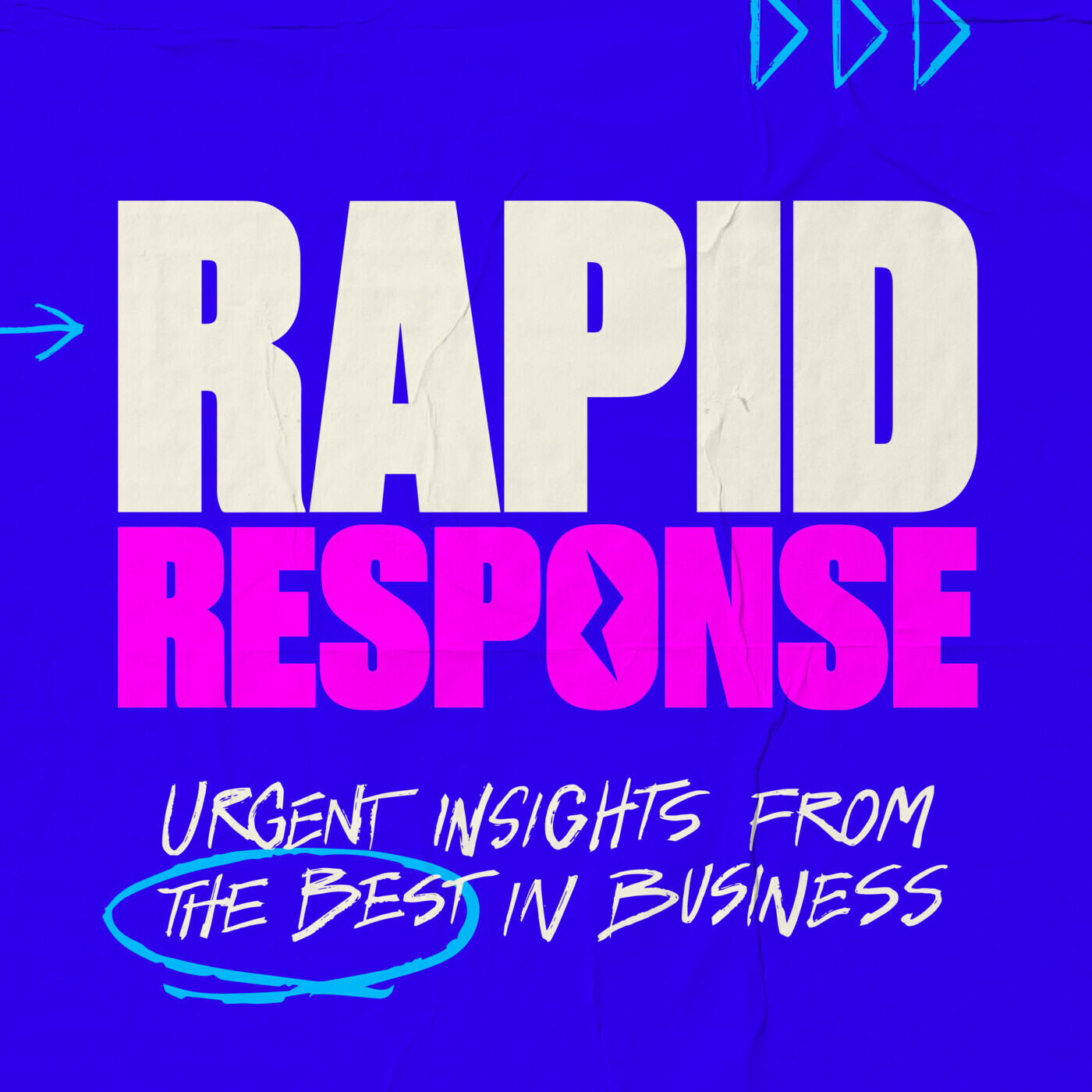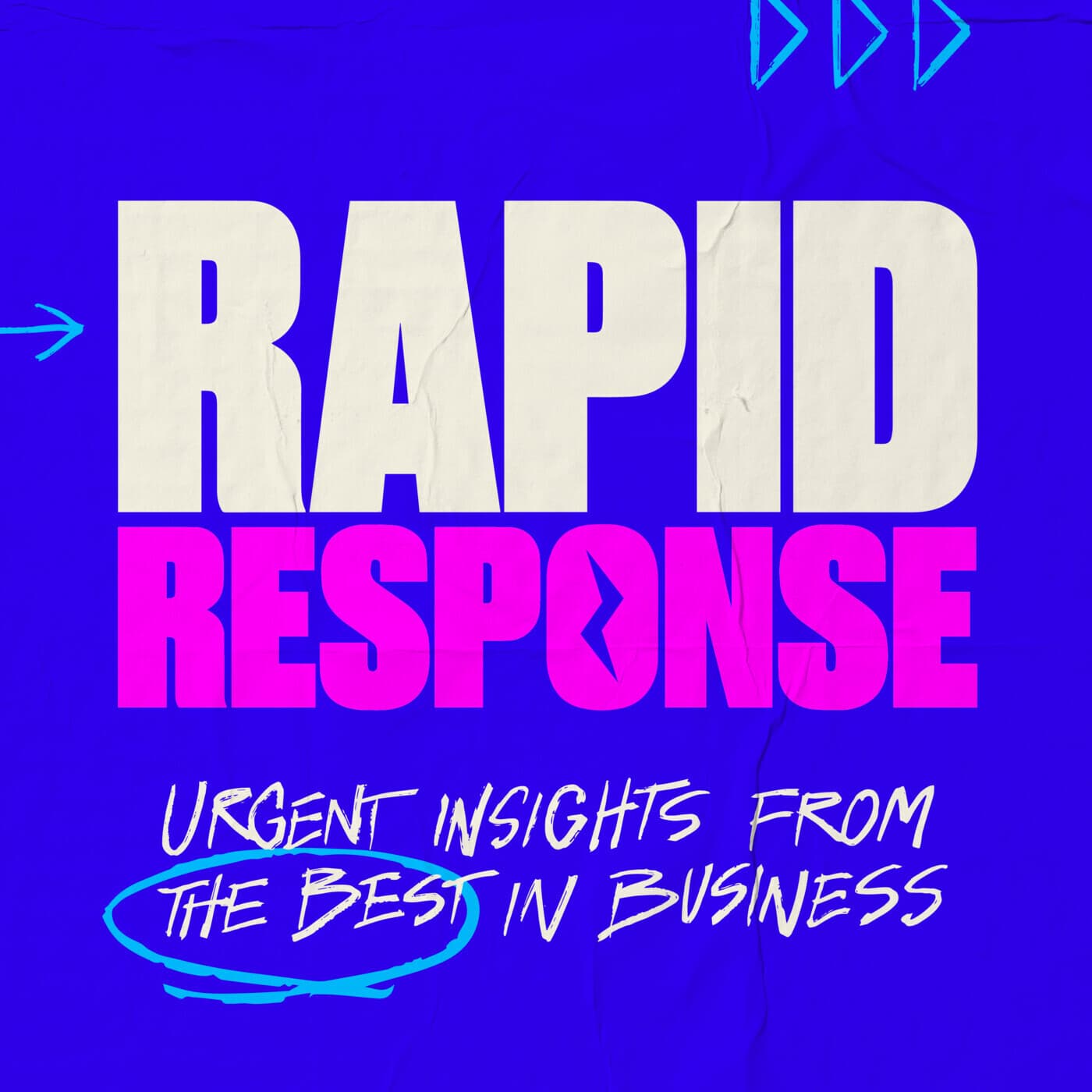
January 7, 2025 • 30min
5 bold AI predictions for 2025, with Pioneers of AI host Dr. Rana El Kaliouby
Masters of Scale
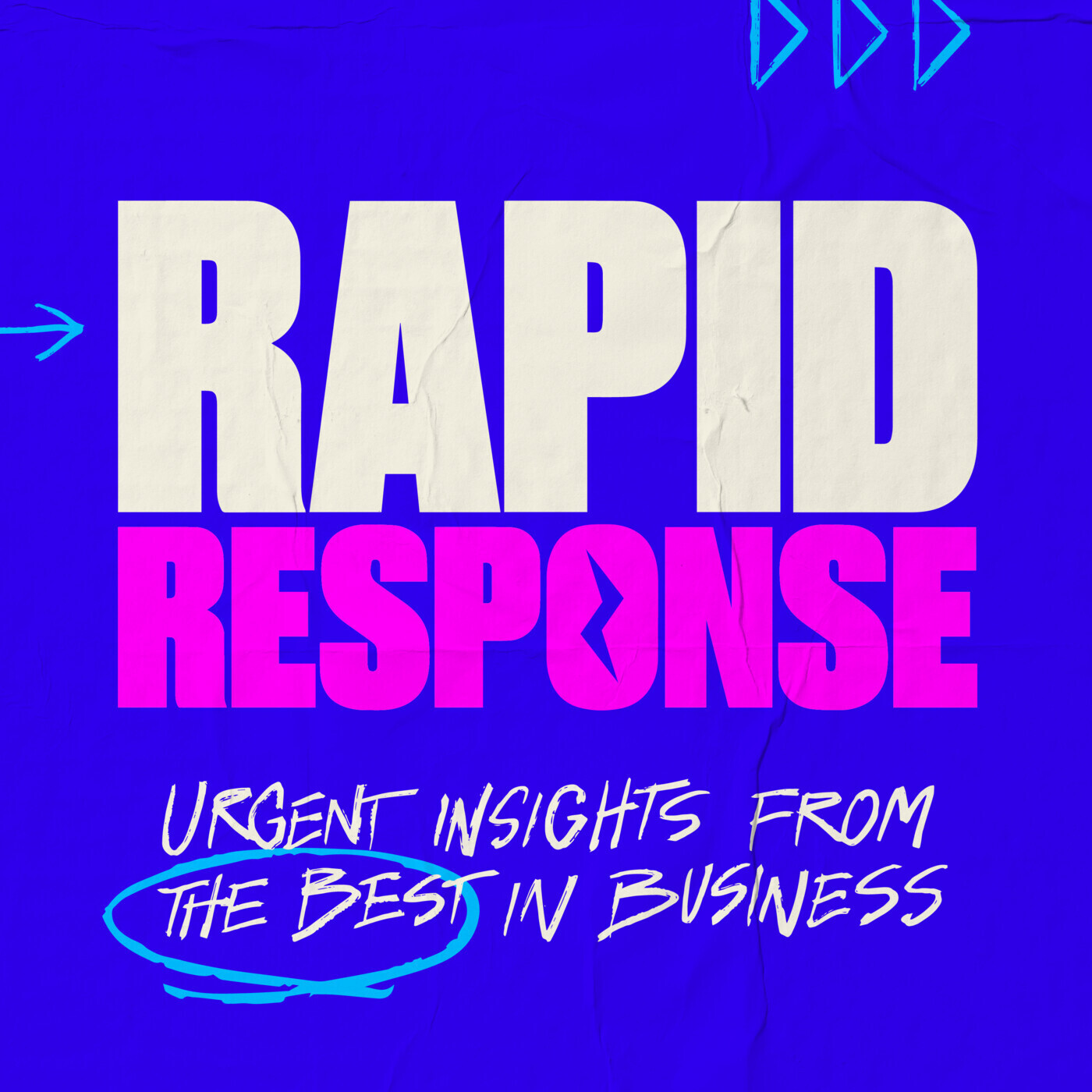
Key Takeaways
- AI is still in early stages despite rapid advances - we haven't yet seen the "iPhone moment" that will make AI truly ubiquitous and easy to use
- Five key AI predictions for 2025:
- Rise of AI agents that can act autonomously on users' behalf
- Emergence of embodied AI and physical robots
- First "one-person unicorn" enabled by AI tools
- AI health copilots leveraging sensors and data
- Greater emotional intelligence in AI systems
- Trust and ethics remain critical challenges as AI capabilities expand into more personal domains
- AI adoption is still not mainstream - many people and businesses have yet to truly integrate AI into daily operations
Introduction
Rana El Kaliouby, host of Pioneers of AI podcast and AI expert, joins to share her predictions for how artificial intelligence will evolve and impact business and society in 2025. As both an AI pioneer and investor, she provides unique insights into technological advances, ethical considerations, and investment opportunities in the AI landscape.
Topics Discussed
The Rise of AI Agents (02:03)
AI agents represent the next evolution beyond current chatbots, with the ability to actually complete tasks autonomously on behalf of users.
- Current state: Some enterprise companies already using AI agents for internal workflows
- Key challenge: Creating simple, trustworthy interfaces for consumer applications
- Example use case: AI agent that could schedule medical appointments by accessing calendars and health information
- Trust considerations: Users must be comfortable delegating tasks and sharing sensitive information
Embodied AI and Robotics (05:40)
Physical manifestations of AI are expected to emerge beyond 2D screens, though consumer applications may lag behind business use cases.
- Current applications: Manufacturing and retail robots using computer vision and AI
- Future potential: Social robots and companions for homes
- Key challenges:
- Cost barriers for consumer adoption
- Algorithmic bias in physical perception
- Privacy concerns with robots in personal spaces
The One-Person Unicorn (09:58)
AI tools may enable individual entrepreneurs to build billion-dollar companies with minimal human employees.
- Concept: Using AI teams for different business functions (marketing, sales, legal, etc.)
- Efficiency gains: AI-native companies can operate with significantly lower overhead
- Investment implications:
- Bifurcation in valuations between early-stage and later-stage companies
- Questions about defensibility and longevity of AI-dependent business models
AI Health Copilots (19:08)
Integration of sensors, data, and AI to create personalized health companions.
- Key components:
- Body sensors and environmental monitoring
- Comprehensive health data collection
- Predictive and generative AI capabilities
- Applications:
- 24/7 health monitoring and advice
- Personalized nutrition and exercise recommendations
- Mental health support and therapy
- Focus areas: Women's health and underserved medical needs
Emotional Intelligence in AI (24:18)
The importance of developing AI systems that can understand and respond to human emotions.
- Benefits:
- Better decision-making capabilities
- More effective human-AI interaction
- Enhanced ability to influence behavior change
- Concerns:
- Potential for manipulation and addiction
- Impact on young people's social development
- Need for ethical guidelines and limitations
Ethical Considerations and Challenges (26:39)
Discussion of key ethical challenges facing AI development and deployment.
- Major concerns:
- Addiction potential of AI companions
- Privacy and data protection
- Manipulation through emotional understanding
- Recommended safeguards:
- Age restrictions for certain AI applications
- Limitations on monetization and advertising
- Built-in usage limits and boundaries
Future Outlook and Industry Impact (31:16)
Broader perspective on AI's trajectory and implications.
- Key observations:
- AI adoption still not widespread despite media attention
- Need for more inclusive AI development
- Many businesses still in early stages of true AI integration
- Future developments:
- Evolution of human-machine interfaces
- Greater integration of AI into daily life
- Continued ethical and societal challenges
Conclusion
While AI has made significant advances and garnered tremendous attention, we are still in the early stages of its development and integration into society. The coming year promises significant developments in areas like autonomous agents, embodied AI, and health applications, but these advances must be balanced with ethical considerations and trust-building measures. The challenge ahead lies not just in developing the technology, but in ensuring it is deployed responsibly and inclusively.

